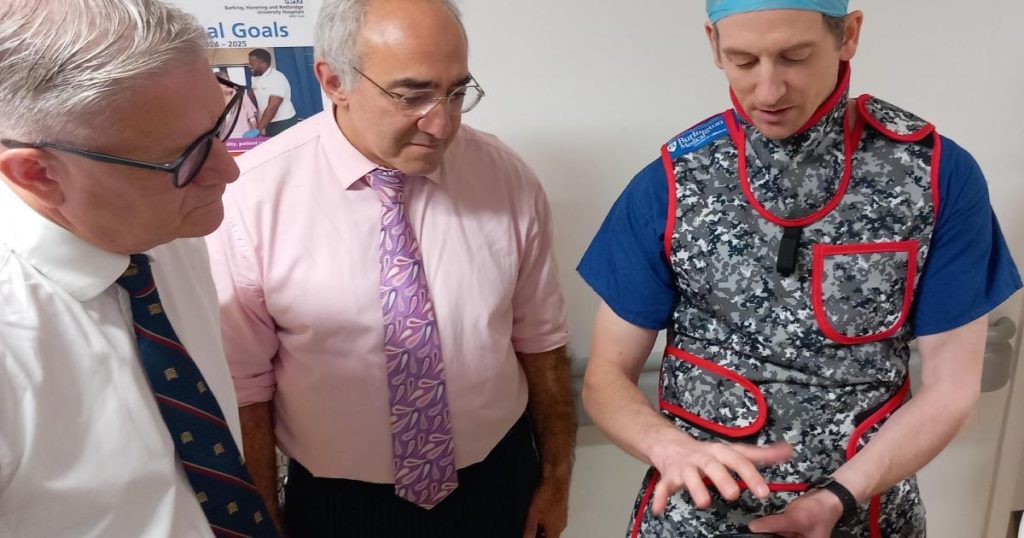Romford’s MP Andrew Rosindell visited the acute stroke unit wards and neuro-radiology service to see how Queen’s was now coping.
It is running a 24-hour thrombectomy service seven days a week until January, covering a population of almost nine million people.
“I saw at first hand the stroke care service,” the MP said. “It was impressive to see how Queen’s has changed its thrombectomy service to provide life-saving operations for so many people.”
The hospital in Rom Valley Way, Romford, is one of eight designated hyper unit centres across London able to provide specialist treatment that can also take on the extra load while the Royal London’s biplane machine is being replaced.
The stroke unit at Queen’s had run only six days a week before this, treating patients just in Havering, Barking and Dagenham and Redbridge.
“Lives of people are being saved thanks to this service,” Mr Rosindell added. “It is providing care at a time in someone’s life when it is needed most.”
The MP looked at how Queen’s was stepping up to cope with the rise in numbers of cases and how community services were being developed to make sure speedy treatment was accessible to all.
Emergency patients are being brought in from north and east London, Kent, Medway and East Anglia who would normally be taken to the Royal London.
Matthew Trainer, chief executive for Barking, Havering and Redbridge University Hospitals NHS Trust (BHRUT), said: “This was an opportunity to show the MP how staff have risen to the recent challenges and to see the standards of care that we give patients.”
Stroke patients suffer from clots cutting off blood to the brain which need to be removed quickly, usually with drugs or with a mechanical thrombectomy operation.
Surgeons use a biplane machine that takes detailed X-ray images so they can treat the precise location, BHRUT said, guiding a device through blood vessels to make repairs and remove blockages.



